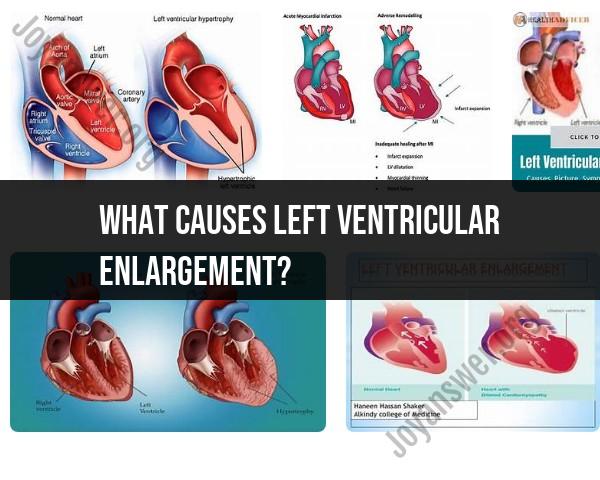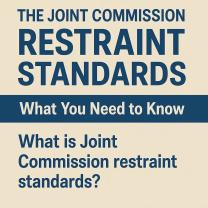What causes left ventricular enlargement?
Left ventricular enlargement (LVE) is a condition in which the left ventricle of the heart, which is responsible for pumping oxygenated blood to the rest of the body, becomes abnormally enlarged. There are several potential causes of left ventricular enlargement, and it can be a sign of an underlying heart condition or other health issues. Some common causes and cardiac implications include:
Hypertension (High Blood Pressure): Chronic high blood pressure forces the heart to work harder to pump blood against increased resistance. Over time, this extra workload can cause the left ventricle to enlarge as it tries to compensate for the increased pressure.
Cardiomyopathy: Cardiomyopathy refers to diseases of the heart muscle, which can weaken the heart and lead to ventricular enlargement. Dilated cardiomyopathy, in particular, is characterized by an enlarged left ventricle.
Aortic Valve Stenosis: When the aortic valve, which controls the flow of blood out of the left ventricle and into the aorta, becomes narrowed (stenotic), it can obstruct blood flow and lead to left ventricular enlargement.
Mitral Valve Regurgitation: In cases where the mitral valve doesn't close properly, it can allow blood to flow backward into the left atrium, causing an increase in volume and pressure in the left ventricle, potentially leading to enlargement.
Congenital Heart Defects: Some individuals are born with structural heart defects that can lead to LVE. These defects may disrupt the normal flow of blood through the heart.
Myocardial Infarction (Heart Attack): A heart attack can damage a portion of the heart muscle, leading to scar tissue formation. This can affect the heart's ability to contract properly and potentially result in ventricular enlargement.
Valvular Heart Disease: Various other valvular heart diseases, such as aortic regurgitation or mitral stenosis, can contribute to LVE by altering blood flow dynamics within the heart.
Arrhythmias: Prolonged arrhythmias (irregular heart rhythms), especially those with rapid heart rates, can increase the risk of LVE because they can disrupt the heart's pumping efficiency.
Obesity: Excess body weight can place additional strain on the heart, leading to LVE over time.
Athlete's Heart: In some cases, endurance athletes may develop a reversible form of LVE due to the physical demands of their training. This is often referred to as "athlete's heart" and typically normalizes when exercise is reduced.
The cardiac implications of left ventricular enlargement depend on its underlying cause and the degree of enlargement. In some cases, LVE can be reversible if the underlying condition is treated or managed effectively. However, severe and long-term LVE can lead to various complications, including heart failure, arrhythmias, and an increased risk of sudden cardiac events. Early detection and appropriate medical management are critical to addressing LVE and its associated cardiac implications. If you suspect you have a heart condition or LVE, it is essential to seek medical evaluation and guidance from a healthcare professional.
Left Ventricular Enlargement: Causes, Consequences, and Management
Left ventricular enlargement (LVE) is a condition in which the left ventricle of the heart becomes enlarged. The left ventricle is the main pumping chamber of the heart, and it is responsible for pumping blood to the rest of the body.
LVE can be caused by a number of factors, including:
- High blood pressure
- Heart valve disease
- Coronary artery disease
- Cardiomyopathy (a disease of the heart muscle)
- Diabetes
- Obesity
- Hyperthyroidism
- Aging
LVE can have a number of consequences, including:
- Heart failure
- Arrhythmias (abnormal heart rhythms)
- Stroke
- Sudden cardiac death
Management of LVE depends on the underlying cause. Treatment may include:
- Medications to lower blood pressure and cholesterol
- Surgery to repair or replace heart valves
- Surgery to widen coronary arteries
- Lifestyle changes, such as losing weight, eating a healthy diet, and exercising regularly
Identifying the Underlying Factors of LV Enlargement
The first step in managing LVE is to identify the underlying cause. This can be done through a variety of tests, including:
- Physical exam
- Electrocardiogram (EKG)
- Echocardiogram (ultrasound of the heart)
- Stress test
- Cardiac catheterization
Once the underlying cause is identified, the doctor can develop a treatment plan to address it.
Medical Interventions and Therapies for LV Enlargement
There are a number of medical interventions and therapies that can be used to manage LVE, depending on the underlying cause. Some of the most common treatments include:
- Medications to lower blood pressure, such as ACE inhibitors, ARBs, and beta-blockers
- Medications to lower cholesterol, such as statins
- Medications to improve heart function, such as digoxin and spironolactone
- Surgery to repair or replace heart valves
- Surgery to widen coronary arteries
Monitoring LV Size and Function for Better Outcomes
It is important to monitor LV size and function on a regular basis to assess the effectiveness of treatment and identify any early signs of worsening. This can be done through echocardiograms and other tests.
Strategies for Preventing and Managing LV Enlargement
There are a number of things you can do to prevent and manage LVE, including:
- Maintaining a healthy weight
- Eating a healthy diet
- Exercising regularly
- Controlling blood pressure
- Managing cholesterol levels
- Treating any underlying medical conditions, such as diabetes and hyperthyroidism
If you have LVE, it is important to follow your doctor's instructions and take all medications as prescribed. With proper management, many people with LVE can live long and healthy lives.












